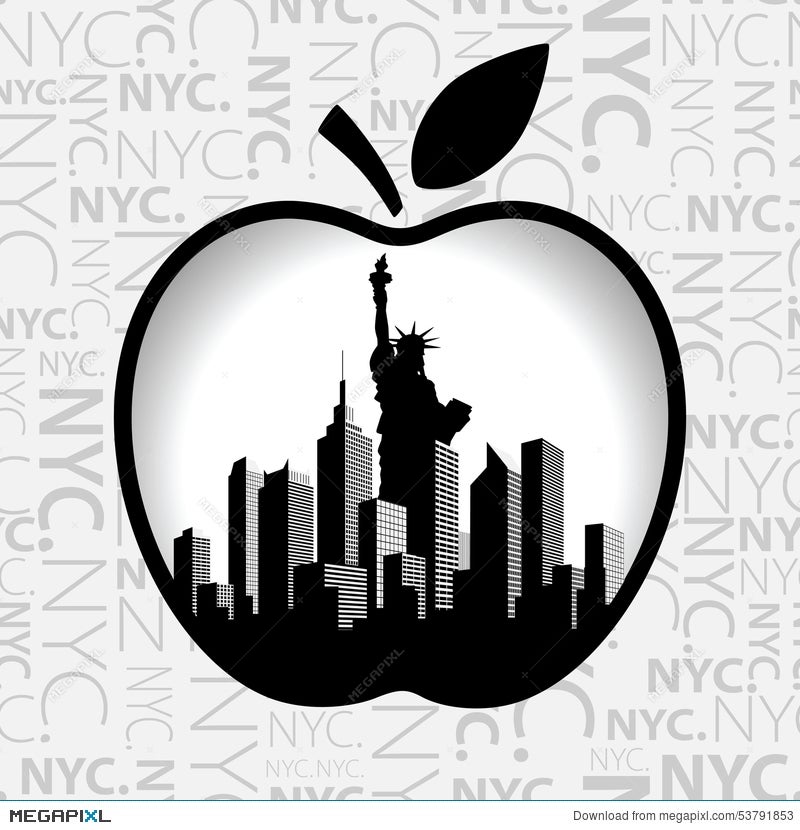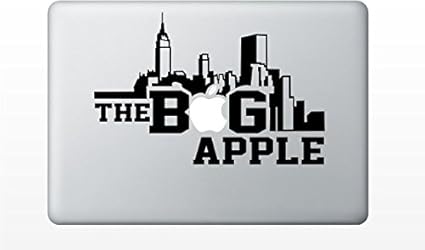
New York state is America’s top apple grower, after the state of Washington,
but New York City’s nickname has nothing to do with fruit production.
In fact, the Big Apple moniker first gained popularity in connection with horseracing. Around 1920, New York City newspaper reporter John Fitz Gerald, whose beat was the track, heard African-American stable hands in New Orleans say they were going to “the big apple,” a reference to New York City, whose race tracks were considered big-time venues. Fitz Gerald soon began making mention of the Big Apple in his newspaper columns. In the 1930s, jazz musicians adopted the term to indicate New York City was home to big-league music clubs.

but New York City’s nickname has nothing to do with fruit production.
In fact, the Big Apple moniker first gained popularity in connection with horseracing. Around 1920, New York City newspaper reporter John Fitz Gerald, whose beat was the track, heard African-American stable hands in New Orleans say they were going to “the big apple,” a reference to New York City, whose race tracks were considered big-time venues. Fitz Gerald soon began making mention of the Big Apple in his newspaper columns. In the 1930s, jazz musicians adopted the term to indicate New York City was home to big-league music clubs.

The nickname later faded from use and wasn’t revived until the early 1970s,
as part of a tourism campaign to spiff up New York’s image. At the time, the country’s most populous city was experiencing economic woes and high crime rates. The man credited with creating the ad campaign, Charles Gillett, president of the New York Convention and Visitors Bureau, was a jazz enthusiast who knew that the Big Apple had once been a sobriquet bestowing respect on the city. Pins, T-shirts and other promotional items featuring apples soon proliferated, and visitors were invited to take a bite out of the Big Apple;
this time around, the name stuck.

as part of a tourism campaign to spiff up New York’s image. At the time, the country’s most populous city was experiencing economic woes and high crime rates. The man credited with creating the ad campaign, Charles Gillett, president of the New York Convention and Visitors Bureau, was a jazz enthusiast who knew that the Big Apple had once been a sobriquet bestowing respect on the city. Pins, T-shirts and other promotional items featuring apples soon proliferated, and visitors were invited to take a bite out of the Big Apple;
this time around, the name stuck.

As it happens, long before New York City was nicknamed the Big Apple, it was known briefly as New Orange. In 1673, the Dutch captured New York from the English and dubbed it New Orange in honor of William III of Orange. However, the following year, the city reverted to English control and its former name.
*BY ELIZABETH NIX

Attractions and Symbols of the Big Apple
Based in the borough of Queens, the New York Mets of the MLB have embraced The Big Apple nickname since 1980. This franchise used the signature Home Run Apple to celebrate home runs at Shea Stadium.
When the new Citi Field opened in 2007, the iconic symbol was retired. Disappointed fans pressured the New York Mets to save the original Home Run Apple. Fortunately, this installation was restored and preserved on the grounds of Citi Field. Before entering the stadium's gates, fans often pose in front of this popular symbol of the Mets and NYC.


The intersection of West 54th Street and Broadway is officially known as
The Big Apple Corner. A native New Yorker, Mayor Rudy Giuliani
enthusiastically approved the renaming of the corner in 1997.

Situated between Pier 46 and Pier 45 in Manhattan, the Apple sculpture
is another notable landmark that celebrates The Big Apple nickname.
Standing 9 feet tall, this bronze installation was made by Stephan Weiss,
who was married to the world-famous fashion designer Donna Karan.
The Apple has recently become one of the most popular attractions in the
West Village neighbourhood. This artwork is beautifully incorporated into
the lush gardens along the Hudson River.


Δεν υπάρχουν σχόλια:
Δημοσίευση σχολίου